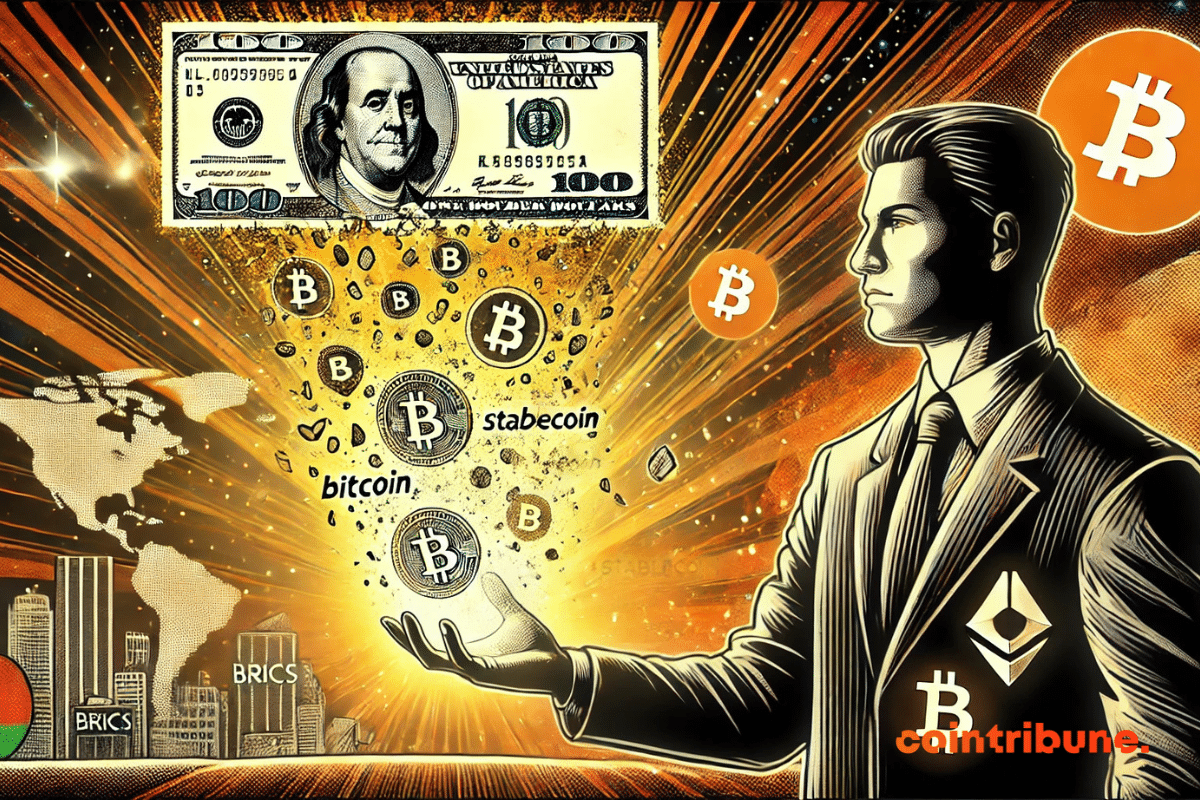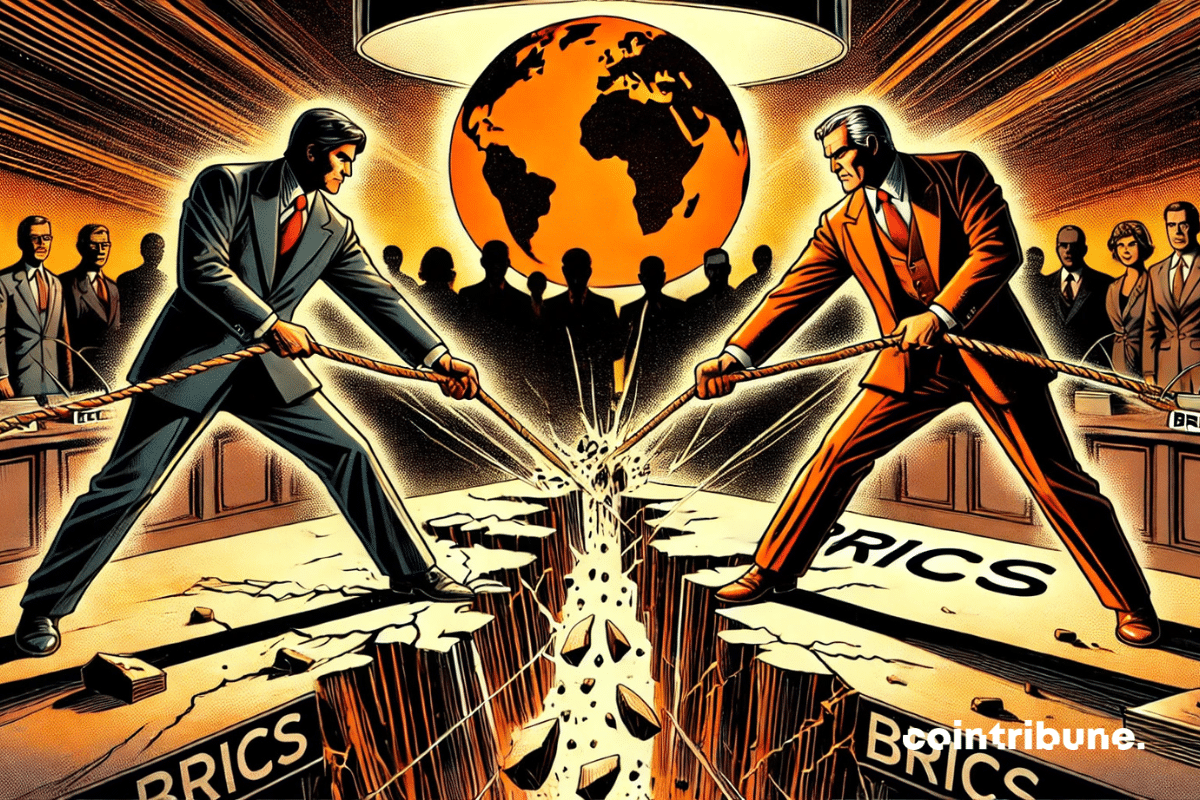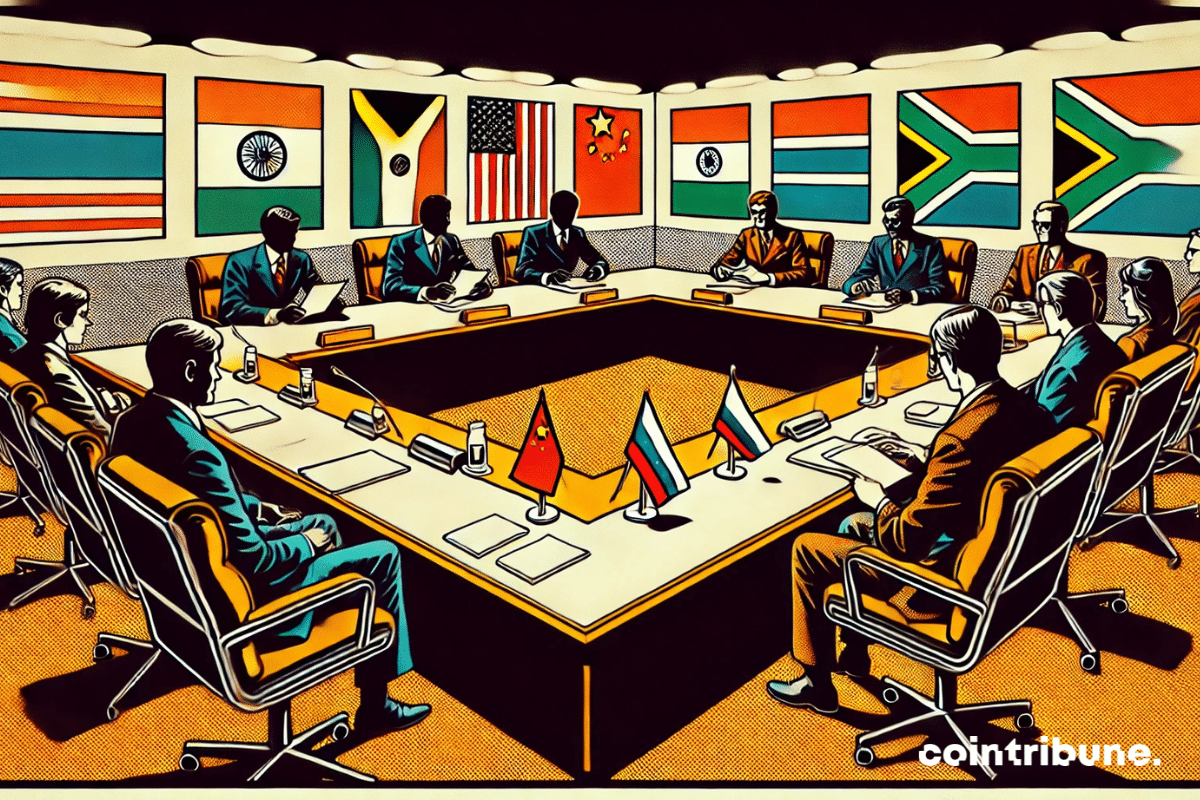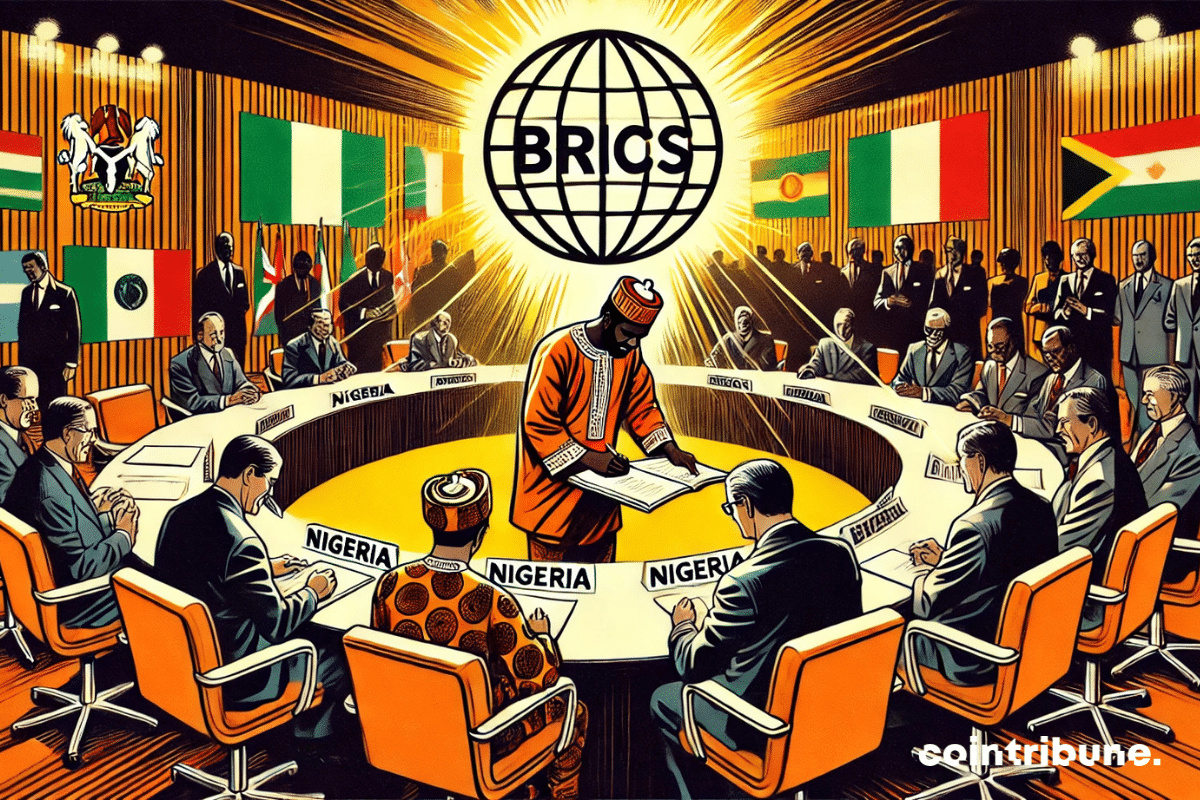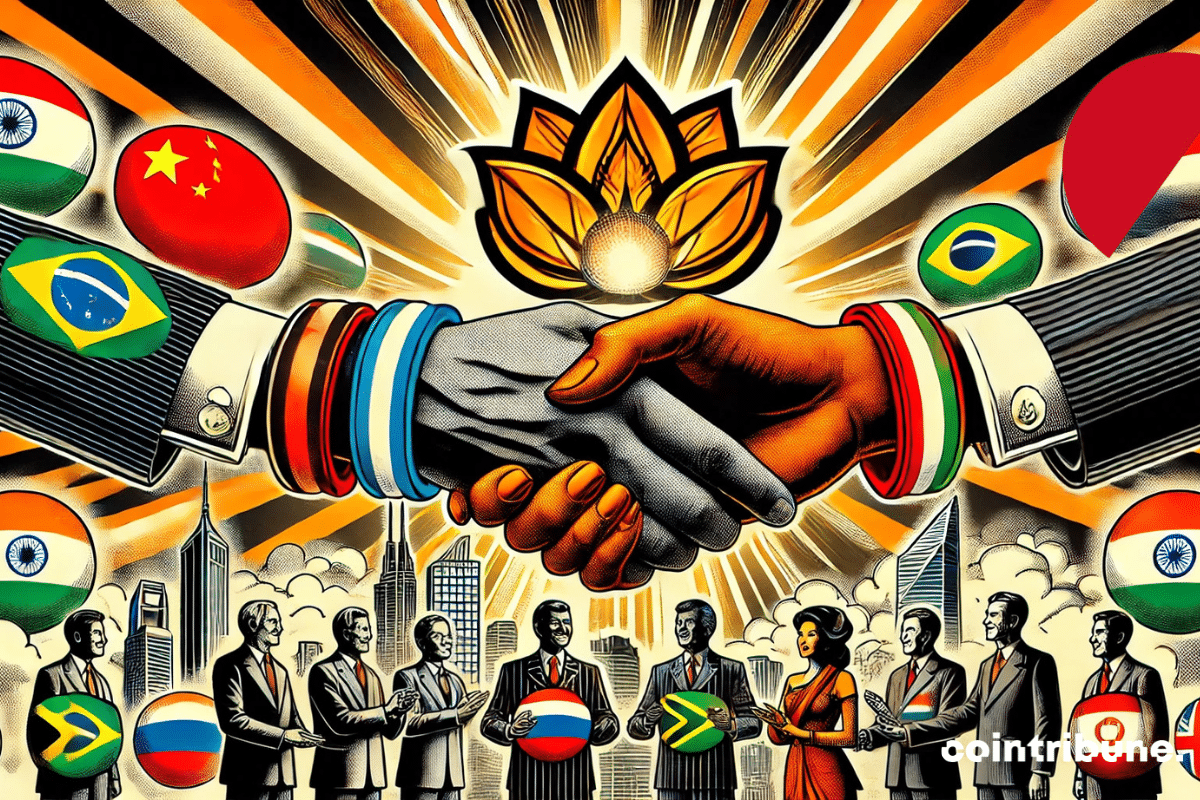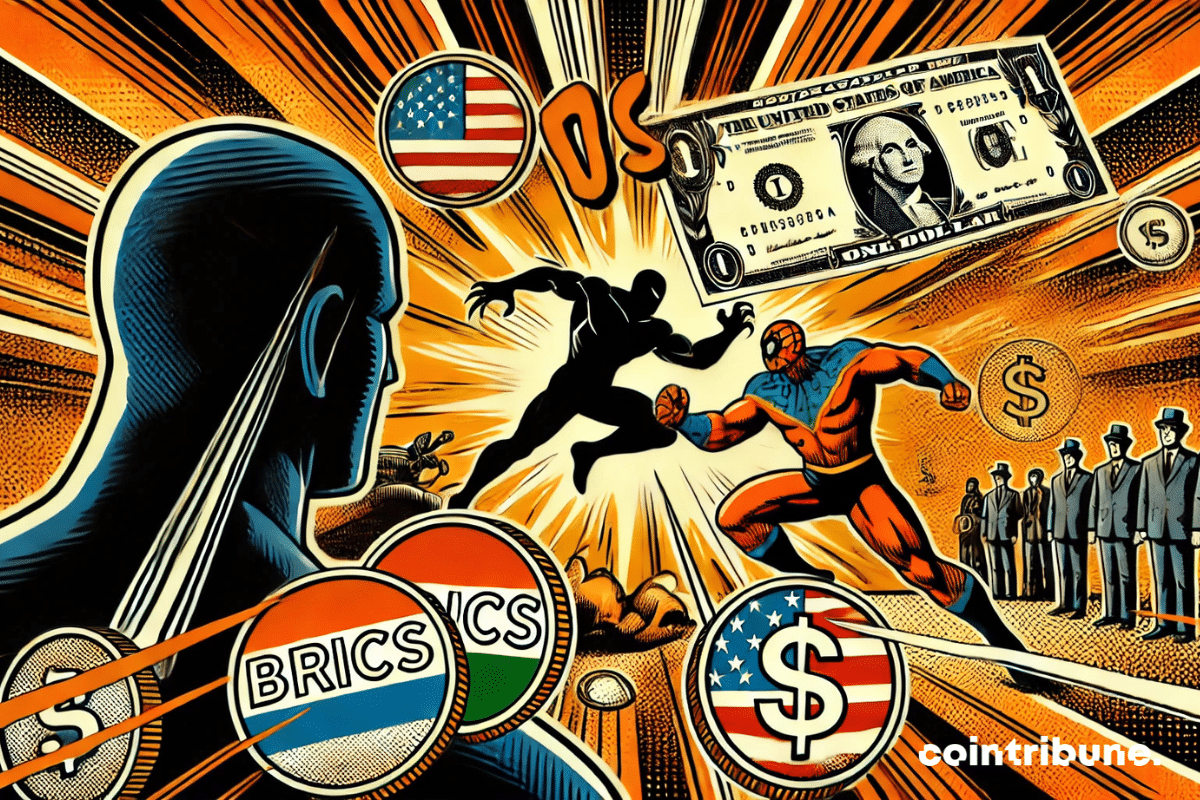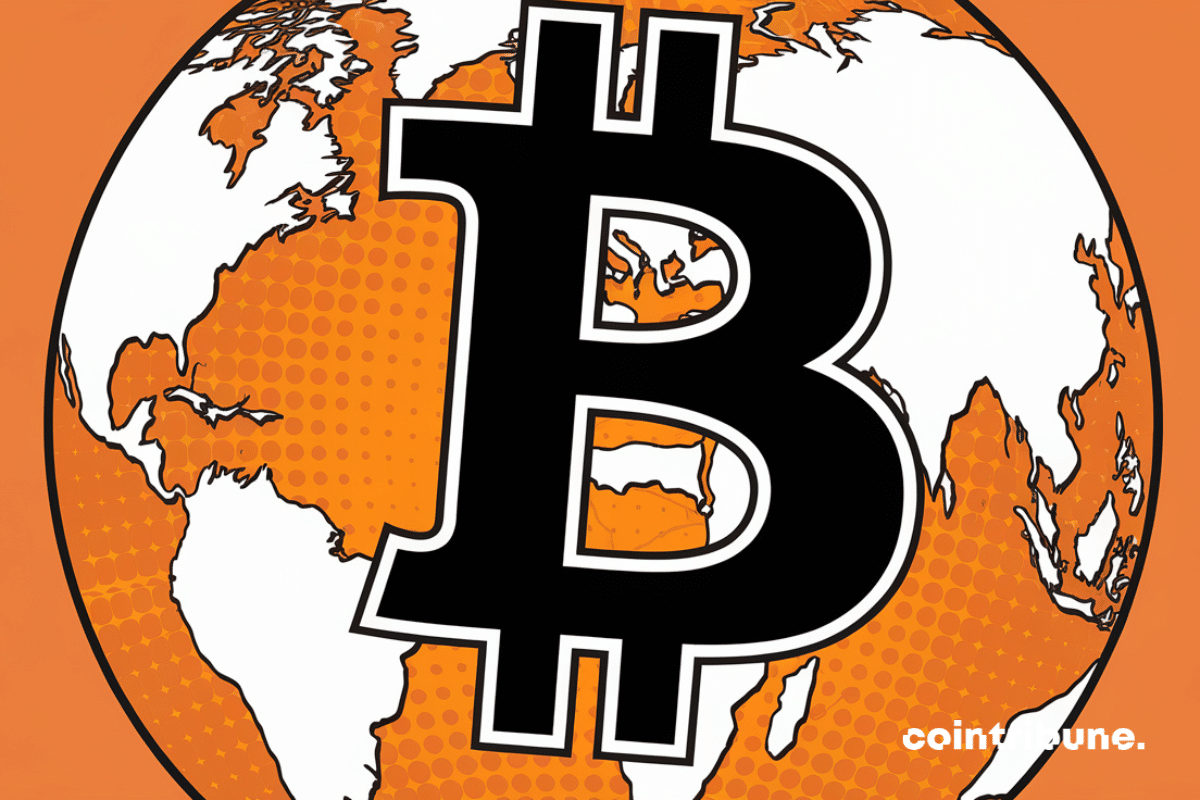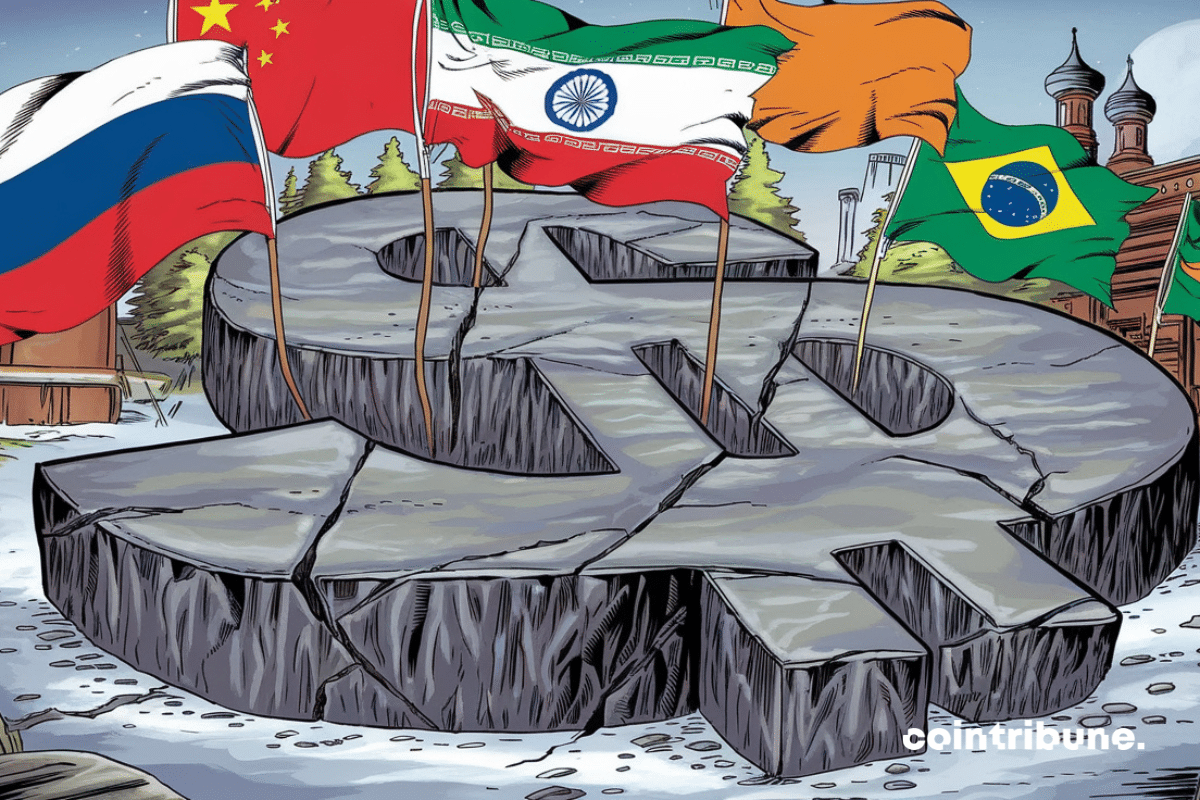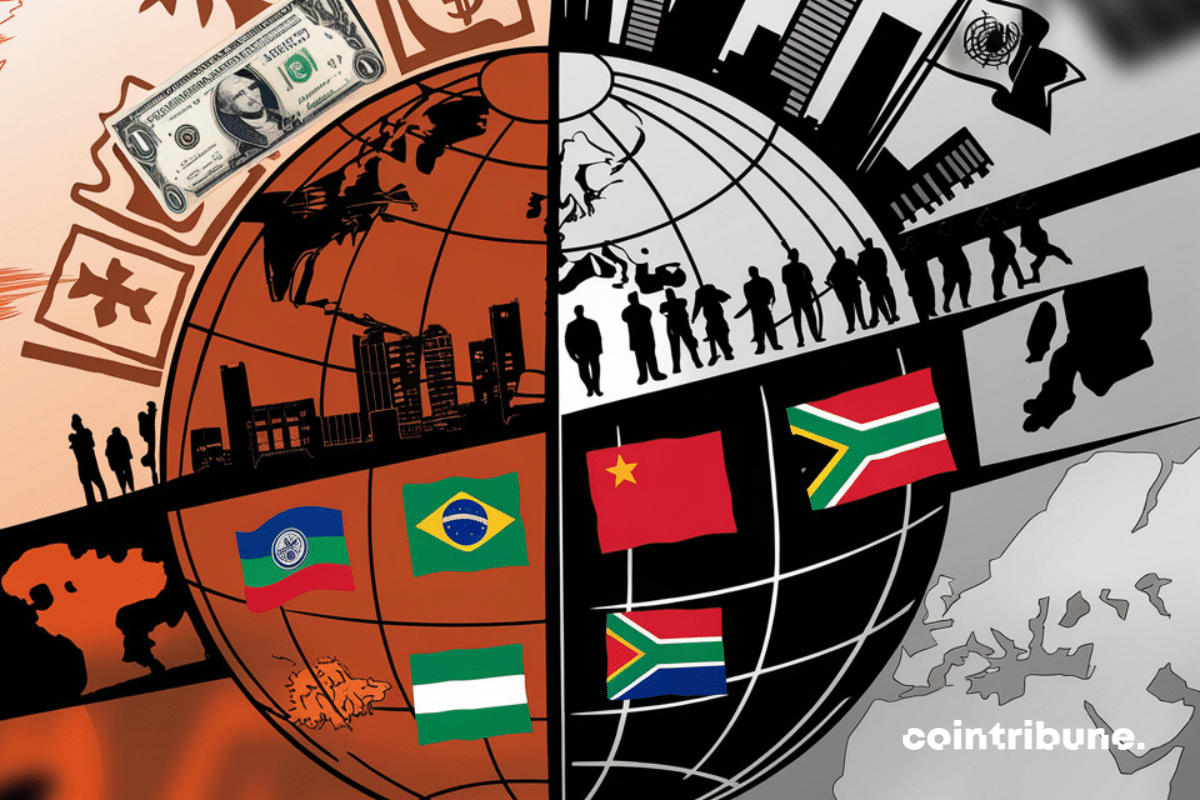The United Arab Emirates, now members of the BRICS, will invest 1.4 trillion dollars in the United States over ten years. Announced after a meeting with Donald Trump, this maneuver reshapes global balances. Between technological ambition, diplomatic calculation, and projection of influence, Abu Dhabi is shaking up the lines of a world now structured by variable geometry economic alliances.
BRICS
In his recent intervention, Subrahmanyam Jaishankar sought to dispel any ambiguity about India's position regarding the dollar: "there is no policy on our part aimed at replacing the dollar. At the end of the day, the dollar as a reserve currency is a source of international economic stability."
The USA-Ukraine summit was recently held in Riyadh and resulted in more ambitious ceasefire proposals than expected. "The ball is now in Russia's court" has become the American talking point on this issue. Meanwhile, Europe appears to be accelerating its military reassertion in an increasingly tense geopolitical context.
For decades, the US dollar has dominated international trade and has established itself as an essential global reserve. However, this absolute reign is now challenged by the BRICS bloc. As a result, geopolitical tensions and the rise of cryptocurrencies are pushing several countries to seek alternatives to the greenback. Bitcoin and stablecoins are emerging as instruments capable of circumventing the supremacy of the dollar, but paradoxically, they could also reinforce its influence.
In the shadow of the economic restrictions imposed by the West, Moscow is charting a new path for its energy trade. In the face of exclusion from the international financial system, Russia has found an alternative solution: the use of Bitcoin (BTC) and Tether (USDt) to bypass sanctions and ensure the continuity of its oil exports.
The economic confrontation between the United States and China is taking on a new dimension. Indeed, far from being limited to traditional exchanges, this trade war is now affecting the crypto market. Thus, between Donald Trump's announcement regarding the creation of a national strategic reserve of cryptocurrencies and the Chinese response to American economic sanctions, investors are witnessing market movements of rare intensity. The question now arises: is this instability temporary or should we expect a lasting impact?
The foreign policy of the United States could undergo a major shift. As diplomatic tensions between Washington and Moscow have intensified in recent years, Donald Trump appears ready to rewrite the rules of the game. The American president, a favorite in the race for the White House, is considering an economic rapprochement with Vladimir Putin's Russia, aiming to break with the sanctions strategy imposed under Joe Biden. Is this a maneuver intended to undermine the BRICS alliance?
The global geopolitical balance is undergoing significant changes. Russia, which was once a member of the G8 before its exclusion in 2014, is now adopting a radically different stance. In the face of what it perceives as a decline in the influence of Western powers, Moscow now favors the BRICS and the G20, at the expense of a G7 deemed obsolete. This strategic reconfiguration goes beyond a mere diplomatic adjustment; it illustrates a broader shift in power dynamics, where emerging economies are gaining ground against Western-dominated institutions. Through the statements of its ambassador to Canada, Russia confirms its definitive disengagement from the G7 and outlines the contours of a new international order.
In a constantly changing world, where every political decision redraws the contours of power, a major phenomenon is emerging: the rise of the BRICS. This acronym, once seen as a symbolic grouping of major emerging economies, now asserts itself as a driving force of geopolitical balance. With the recent expansion of this bloc to new influential members, the global landscape is enriched with unprecedented dynamics, challenging the hegemony of Western institutions. While Donald Trump embarks on a second term in the United States, focused on a protectionist and isolationist policy, the rise of the BRICS represents a strategic challenge with profound implications.
For several decades, global economic alliances have been evolving due to geopolitical and economic transformations. The BRICS bloc embodies this dynamic through its expansion to new members in order to consolidate its influence on the international stage. In 2023, Saudi Arabia, the world's largest oil exporter, received an official invitation to join this strategic alliance. However, unlike other countries such as Iran or the United Arab Emirates, which quickly accepted, Riyadh is adopting a cautious stance. Faisal Al-Ibrahim, the Saudi Minister of Economy and Planning, emphasized that the kingdom continues to carefully assess the implications of membership. This strategic choice raises questions about Saudi Arabia's true intentions and its future role in this new economic balance.
The global economic landscape is rapidly evolving, driven by alliances that reflect the ambitions of emerging countries to reshape traditional centers of influence. In this context, Nigeria, the largest economic power in Africa, has joined the circle of BRICS partners. This initiative, orchestrated under Brazil's presidency, highlights the bloc's desire to promote enhanced cooperation among the nations of the global South. Although this partnership does not yet confer a decision-making role to Nigeria, it reflects a growing dynamic of economic integration and a shared quest for financial sovereignty in the face of dominant Western models.
The BRICS project to create a common currency is generating growing interest among economists and analysts, as it could redefine global financial balances. For decades, the US dollar has dominated as the main reserve currency, giving the United States substantial economic and geopolitical power. During their summit in 2024 in Kazan, Russia, the leaders of the BRICS intensified their discussions on establishing an alternative called "Unit," designed to facilitate exchanges within the bloc. This project fits into a broader strategy aimed at reducing their dependence on the dollar, in the context of increasing geopolitical tensions and economic sanctions. At a time when many countries are seeking to diversify their reserves and bypass the constraints imposed by the current monetary system, can this initiative truly shake the dollar's supremacy?
The global economic landscape, long dominated by Western powers and supported by the preeminence of the dollar, seems on the brink of change. In the face of a financial system centralized around the United States and Europe, many nations are expressing a growing desire to turn to alternatives. This trend is accelerating with the recent announcement: more than twenty countries from several continents have officially submitted their candidacy to join BRICS in 2025. If this project comes to fruition, the expansion of the formed bloc could enhance its economic weight but also redefine the balance of power on a global scale.
For several years, the BRICS have been seeking to reduce their dependence on the US dollar by developing a monetary alternative. However, at the beginning of 2025, the reality of the foreign exchange market is slipping away from them. The dollar is asserting itself more than ever and reaching new heights while the currencies of the bloc are collapsing. The Indian rupee has plummeted to a historic low of 85.93, the Chinese yuan is weakening, and other local currencies are struggling to hold on. Despite the BRICS' efforts to counter the hegemony of the greenback, the current dynamics expose the limits of their dedollarization strategy and raise the question of the viability of a credible alternative.
Indonesia, the largest economy in Southeast Asia, officially joined the BRICS bloc in January 2025, marking a major turning point in the reconfiguration of global economic alliances. This membership significantly strengthens the group's weight, which now represents over 51% of the world's population and 40% of global GDP.
The center of gravity of the global economy is gradually shifting towards new alliances. In the face of the waning influence of Western institutions, another bloc is consolidating its power. Since January 1, 2025, the BRICS have taken a new step by welcoming nine partner states. This expansion, decided at the Kazan summit in October 2024, reinforces their political and economic weight and broadens their grip on emerging markets. Now, the organization represents 51% of the global population and generates 40.4% of global GDP in purchasing power parity.
The BRICS have been presenting themselves for several years as a credible alternative to hegemonic economic blocs such as the G7. In this context of increasing rivalries among powers, Russia has taken steps to expand this alliance. It then invited Saudi Arabia and Turkey to join its ranks. Moscow hoped to strengthen the bloc's influence on the international stage and to face the pressures from Western economies. However, these efforts encountered a rejection. This setback illustrates the divergent interests among these nations, as well as the challenges that the BRICS face in expanding their circle of influence in a world where geopolitical balances are becoming increasingly complex.
The BRICS are ushering in a new economic era with a historic expansion planned for January 2025. This group, which unites some of the largest emerging economies, is set to welcome nine new partners, marking a decisive step in its quest for strengthening its position on the international stage. Such a move comes at a time when geopolitical rivalries are intensifying and traditional alliances are being questioned. Through the extension of their geographical and strategic reach, the BRICS aim to consolidate their influence, but also to provide a credible alternative to Western-dominated economic models. This shift reflects a reorganization of global economic powers, in response to growing demands for a more balanced and multipolar system.
International economic dynamics always attract marked interest, particularly when coalitions like the BRICS are perceived as a threat to the hegemony of the American dollar. However, the recent statements from Russia, India, and South Africa have clarified their position. Indeed, these countries assert that no plan aims to weaken the American currency. They firmly reject the accusations of "de-dollarization" and emphasize their willingness to maintain stable relations with the United States.
In the face of intensifying global economic tensions, the central role of the dollar in international exchanges is increasingly being called into question. At the heart of this upheaval, the BRICS nations are seeking to break free from this dependency by exploring alternative solutions. According to economist Jim Rickards, these countries already have an unofficial common currency: gold. This discreet yet strategic approach allows them to bypass the financial pressures exerted by the United States, particularly through economic sanctions. As the United States intensifies the use of the dollar as a geopolitical weapon, the BRICS are mounting a resistance that could redefine the rules of global trade. This strategy raises questions about the future balance of the international monetary system.
Global economic dynamics are evolving, and the hegemony of the US dollar seems to be wavering. Two influential members of the BRICS alliance, Russia and Iran, have just announced a major change: a complete abandonment of the dollar for their trade exchanges. While this decision reflects a desire for economic sovereignty in the face of external pressures, it could also pave the way for a profound upheaval of international financial balances.
In a rapidly changing multipolar world, the strategies of major powers shape economic and political balances. Analyst Boris Mezhuyev, during a debate in Moscow, revealed a potential axis of Donald Trump's future foreign policy: directly targeting the BRICS. This strategic repositioning could profoundly redefine global alliances and impact key sectors, including finance and cryptocurrencies.
The BRICS have just completed their summit in Kazan, in an explosive geopolitical context. Between the war in Ukraine, conflict in the Middle East, and the American elections, the BRICS are increasingly establishing themselves as an alternative to America!
Will the BRICS embrace bitcoin? This is at least the thesis of the head of digital asset research at the investment firm VanEck.
Poutine returns to the international stage by hosting 36 leaders at the BRICS summit in Kazan. The imperial currency is still on the agenda.
The global geopolitical landscape is undergoing significant changes, and the BRICS, this group of emerging powers, is at the heart of this reorganization. As economic and political tensions with the West intensify, more than thirty nations have expressed their willingness to join this alliance at the annual summit currently taking place in Kazan from October 22 to 24, 2024. In the face of Western hegemony, the BRICS aim to reshape the balance of power and free themselves from the dominance of the dollar in international trade.
On the occasion of the BRICS Business Forum, the nations of this emerging alliance unveiled their brand new cross-border payment system: BRICS Pay. This initiative represents a clear intent to reduce dependence on the US dollar, a currency still predominant in global transactions. As the BRICS seek to emancipate themselves from the financial influence of the United States, the creation of an autonomous payment system could very well redefine the rules of international trade.
The BRICS summit chaired by Russia is approaching rapidly. Here is everything you need to know before this major geopolitical event.
The upcoming BRICS summit, which will take place in Kazan, Russia from October 22 to 24, appears to be a key milestone in the ongoing international reshaping. By bringing together several rising powers and strategic partners at the same table, this summit aims to strengthen the bloc's influence on global economic, political, and diplomatic issues. The presence of Antonio Guterres, Secretary-General of the United Nations, at the heart of these discussions is a strong sign of recognition of the growing importance of the BRICS. More than just a diplomatic trip, his participation reflects a desire for openness and the integration of this group into global governance.
Cointribune has interviewed Anti Danilevski. He is the CEO of Kicked, an exchange operating in Russia. We talked about the western sanctions over Russia, the BRICS and what is in store for bitcoin.



